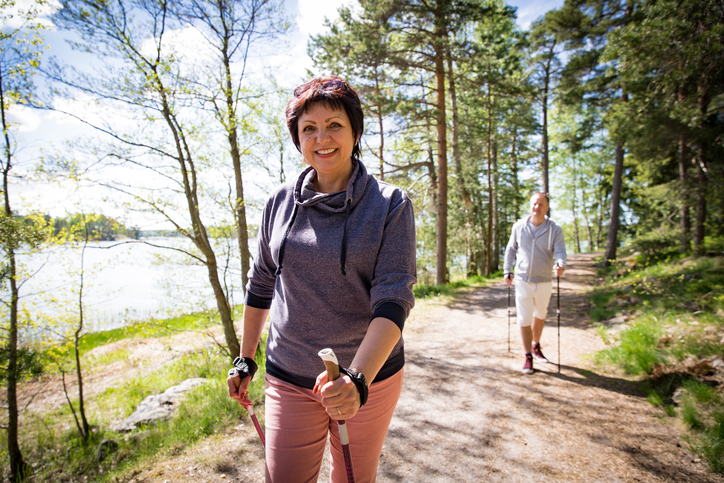Forests, lakes, mountaintops, and the rest of the natural world enjoy a reputation for being places of calm and beauty. In addition, there is evidence that they can exert powerful effects on an individual’s wellbeing, too. A study published by the National Academy of Sciences found that individuals who spent 90 minutes walking through nature “reported lower levels of rumination and showed reduced neural activity in an area of the brain linked to risk for mental illness compared with those who walked through an urban environment” (National Academy of Sciences, 2015). Another study conducted in Japan found comparable results, demonstrating that “Stressful states can be relieved by forest therapy” (Miyazaki, Ikei, & Song, 2014).
For future wellness counsellors, this means the natural world could hold special appeal and utility. In learning to appreciate the subtle power of nature, a wellness counsellor may be able to help transform the lives of their clients.
Here is a look at some of the practical possibilities nature can offer.
Wellness Counsellors Could Use Nature to Help Clients Feel Happier
Individuals feeling sad or apathetic may find that their environment is a contributor to the negative feelings they experience. As stated by Vantage Point Behavioral Health and Trauma Healing, “If your home is in a neighborhood that is run down and dirty, this can lead to mental health issues” (Vantage Point, n.d.).
An excursion into nature can provide the opportunity for an individual in need of environmental change to find relief. Different smells, lighting, colours, and textures can all offer the kind of change conducive to breaking free from environmental ennui (Patterson, 2015). In combination with the services of a professional with a diploma in wellness counselling, this could help clients break free of depressive thoughts linked to their environments.

Getting outside can help provide relief to individuals in unhappy environments
Being in Nature Can Have Significant Health Benefits
It seems the influence of nature can go beyond the psychological, with important physical health benefits documented in some research. A study conducted in China, for instance, found that forest bathing—a practice of entering a forest with the intention of relaxing—”may represent a potential medical intervention in several pathologies, including inflammation and cardiovascular and nervous conditions” (Mao et al., 2011).
Wellness counsellors today receive training geared not only to helping clients achieve mental and emotional wellness, but a more complete state of wellbeing that includes mental, emotional, physical, and spiritual dimensions together. With nature offering a therapeutic setting that can address physical needs as well as an individual’s mental state, it could be a helpful option for graduates of wellness college to incorporate into their work with clients.

Natural settings can provide anti-inflammatory and other health benefits
Wellness Counsellors Can Explain the Benefits of Novel Experiences in Nature
Evidence suggests that engaging in new experiences can contribute to happiness (Pchelin and Howell, 2014). As a result, encouraging clients to engage in new experiences such as hiking, kayaking, or other outdoor activities could well assist them in discovering new interests, or help them enjoy a break from their routine habits. In addition, some Wellness Counsellors conduct sessions in a nature setting or walk with their clients.
Modern wellness counsellors are trained to help individuals explore thoughts and feelings, develop new tools for coping with difficulty, and otherwise assist clients in discovering new strength and wellbeing. A well-trained wellness counsellor can help an individual to get outside and reap the many rewards nature has to offer.
Do you want a career focused on helping others?
Find out how Rhodes Wellness College can help you become a wellness counsellor!
Works Cited
Bratman, G. N., Hamilton, J. P., Hahn, K. S., Daily, G. C., & Gross, J. J. (2015). Nature reduces rumination and sgPFC activation. Proceedings of the National Academy of Sciences,112(28), 8567-8572. doi:10.1073/pnas.1510459112
Brynie, F., Ph.D. (2009, December 21). Depression and Anhedonia. Retrieved from https://www.psychologytoday.com/us/blog/brain-sense/200912/depression-and-anhedonia
Mao, G. X., Lan, G. X., Cao, B. Y., Chen, M. Z., He, Z. H., LV, Y. D., . . . Yang, J. (2011). Effects of Short-Term Forest Bathing on Human Health in a Broad-Leaved Evergreen Forest in Zhejiang Province, China. Biomedical and Environmental Sciences,25(3), 317-324. doi:10.3967/0895-3988.2012.03.010
Miyazaki, Y., Ikei, H., & Song, C. (2014). Forest medicine research in Japan. [Abstract]. Japanese Journal of Hygiene,69(2), 122-135. Retrieved from https://www.ncbi.nlm.nih.gov/pubmed/24858508. Patterson, E. (2015, April 22). Learning to Depression-Proof Your Environment. Retrieved from https://depression.newlifeoutlook.com/changing-your-environment/










